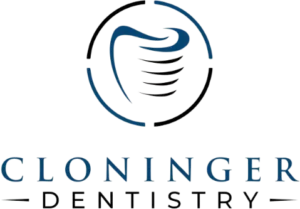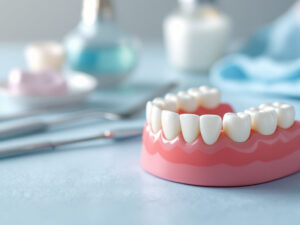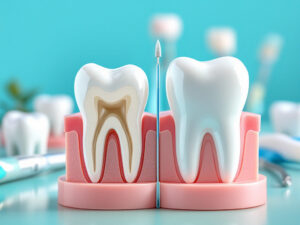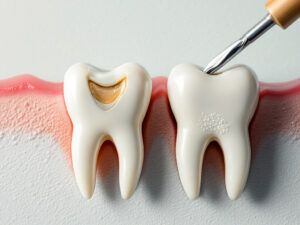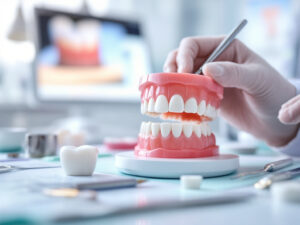Embrace the importance of a treatment planning consultation
If you are searching for dedicated family or cosmetic dental care, one of the first steps on your path to a healthy, confident smile is a well-structured treatment planning consultation. This comprehensive appointment empowers you to share your concerns, explore potential solutions, and work with your dentist to design a pathway that suits your unique oral health goals. At Cloninger Dentistry, we believe in delivering a supportive environment and individualized plans. By understanding your current oral health status and discussing your expectations, we can ensure you receive the support necessary for lasting recovery from any dental issues, as well as achieve the enhancements you desire.
During your treatment planning consultation, you are encouraged to voice every question or worry you may have. Perhaps you are exploring restorative solutions or are simply seeking a new approach to preventative hygiene. In either case, this consultation sets the foundation for a successful experience. Just like a carefully designed therapy plan in mental health care, a dental treatment plan should be tailored to your distinct lifestyle, health history, and objectives. According to the Holistic Therapies Training Academy, factors such as age, medication, time availability, costs, and personal preferences all play a crucial role when formulating a customized plan (Holistic Therapies Training Academy).
Below, you will discover how Cloninger Dentistry approaches treatment planning consultations in a way that is both comprehensive and empathetic. You will also learn about factors that influence your plan, the steps involved in the process, and how you can prepare to receive the best possible care.
Discover how a plan is created
Understanding your unique needs
No two individuals share the same oral health story. You may have issues like chipped or worn teeth, or perhaps you want to enhance your smile’s appearance with porcelain veneer placement or a cosmetic smile makeover. Your plan should address problems that relate to your health history, lifestyle, and personal preferences. By focusing on potential vulnerabilities—such as teeth grinding, jaw disorders, or previous gum issues—you and your dentist can devise a strategy that covers every priority.
In any professional setting, including mental health services, a comprehensive evaluation is integral for effective planning. The same principle applies in dentistry. Before solutions such as professional teeth whitening or dental implant consultation, your dental team needs to assess the structures of your mouth, the health of your gums, and your overall condition. Thorough information gathering ensures that your goals and concerns can be matched to an appropriate plan that leads to consistent, positive results.
Why it matters for your dental goals
A thorough treatment planning consultation brings you closer to achieving long-term oral wellness. Even if you only require basic preventative care, discussing objectives during this session clarifies your path ahead. According to Behave Health, identifying challenges, setting goals, and designing targeted interventions are fundamental steps in creating successful and measurable outcomes in treatment planning (Behave Health). In dentistry, these steps translate to a clear sequence of recommended procedures, timelines for completion, and well-defined expectations.
Just as in the realm of mental health, where professionals emphasize progress measures and collaboration, this planning meeting ensures you are fully aware of what to expect at each stage. As a result, you develop confidence in your care team, feel more motivated to follow their guidance, and are prepared for any next steps. Being able to partner with a trusted professional is especially critical if you plan to undergo elective or cosmetic procedures. An informed perspective reduces anxiety about treatments such as laser gum contouring or gum contouring service. Additionally, it highlights whether sedation options, like nitrous oxide sedation or iv sedation dentistry, might be helpful.
Explore key factors in tailoring your plan
Medical background and lifestyle
When a dentist designs your treatment planning consultation, they take a page from the mental health field, where a thorough client assessment is paramount. In both domains, your practitioner must consider factors including your age, overall health, and everyday routine. For example, if you have busy mornings, it might be more convenient to schedule your routine appointments in the afternoon, reducing the stress of rearranging your day. If you manage chronic health issues or take specific medications, the dental team may adjust their approach to ensure your well-being.
Your habits or hobbies also paint a clearer picture of your oral health profile. If you play contact sports, your dentist may recommend sports mouth guard fabrication. If you have a tendency to grind your teeth at night, exploring a night guard fabrication can preserve your enamel and reduce jaw strain. Similarly, if you are prone to snoring or sleep disturbances, a sleep apnea oral appliance might be beneficial. By weaving these considerations into your plan, you and your dentist craft a blueprint that truly reflects your day-to-day life.
Budget and insurance considerations
Financial concerns often figure prominently in healthcare, including dentistry. During your consultation, it is important to discuss any budget constraints you may have. By opening these lines of communication early on, your dentist can help you prioritize treatments. You can decide together whether to address immediate issues first or schedule complex procedures in stages that suit your financial realities. Sometimes, elective treatments like cosmetic bonding service or laser skin rejuvenation may be postponed until your foundation of oral health is solid.
Insurance coverage is also an important piece of the puzzle. Certain restorative treatments might be partially or fully covered, whereas other procedures may be deemed purely cosmetic. Clarifying these details prevents unpleasant surprises later in the process. Remember that cost, time, and personal objectives all factor into a holistic approach, reinforcing the notion that a treatment planning consultation is about more than just your teeth—it is about matching your desired outcomes with realistic strategies to achieve them.
Scheduling and pace of treatments
Some people prefer a gradual approach, particularly if they are anxious about dental visits. Others want to address multiple concerns quickly. Your treatment planning consultation is the time to discuss what pace feels comfortable for you. If you experience significant anxiety, your dentist might suggest sedation options. For instance, you can learn about sedation for anxious patients or talk through the safety and benefits of a sedation dentistry service. This empathetic approach ensures that anxiety does not become a barrier to completing essential procedures.
Being upfront about scheduling constraints is also beneficial. If you have a packed weekday itinerary, consider requesting a weekend dental appointment or even an afterhours dental appointment. This way, you do not have to compromise your professional duties or personal commitments. Flexibility is key. In fact, some patients prefer obtaining a virtual dental consultation or exploring a telehealth dental consultation for preliminary discussions or routine follow-ups.
Learn the step-by-step consultation process
Initial oral examination
Your path begins with a detailed examination of your gums, teeth, and overall oral condition. During this step, the dentist will check for cavities, gum recession, signs of infection or inflammation, and areas of wear or misalignment. Just as a counselor asks questions to identify the source of mental distress, your dentist gathers vital information to clarify your needs. Whether you aim to address moderate repairs, like an implant placement service, or you simply seek better oral hygiene, the foundation of your plan is built on accurate, up-to-date clinical data.
To gain deeper insights, your dentist may use advanced diagnostic tools. X-rays, intraoral cameras, or digital smile imaging help reveal underlying factors that might not be visible to the naked eye. If you experience severe pain while chewing or if you have chronic jaw tension, you can discuss specialized solutions such as a tmj oral appliance. Transparent communication in this early stage fuels a sense of trust and partnership, reminding you that your input is valued.
Discussion of your goals
After the examination, it is time to define your goals. Are you looking to correct alignment issues with invisalign clear aligners? Do you want a cosmetic smile makeover before an upcoming event? Or are you interested in something more functional, like implant supported dentures? Dentistry offers a wide variety of paths, so this open conversation ensures your plan speaks to your exact priorities. Because every plan must be personalized, we often use a structure similar to SMART goal setting—common in mental health planning—to articulate objectives that are Specific, Measurable, Achievable, Relevant, and Time-bound (Behave Health).
You might feel uncertain about which procedures align best with your lifestyle or budget. This is where your dentist’s expertise becomes a beacon. Together, you will explore potential treatments, weigh pros and cons, and address any fears. For instance, if you are concerned about the invasiveness of traditional braces, you can opt for a clear aligner consultation. Or if you are hesitant about surgery but eager to replace a missing tooth, you can discuss a dental implant consultation, eventually deciding whether a bone grafting ridge preservation is required. By prioritizing your comfort and preferences, the dentist ensures every recommendation aligns with your life.
Creating your tailored plan
Next, the dentist merges your oral examination results with your goals to craft a timeline for procedures. In some cases, you might start with a thorough cleaning to solidify a healthy foundation before moving on to more advanced treatments. If you plan to straighten your teeth, you may do so prior to placing esthetic dental crown placement or veneers, ensuring long-lasting visual harmony. During this planning stage, your dentist documents each step, discusses costs and insurance details, and estimates the total duration.
Drawing upon your lifestyle factors, medical background, and personal preferences, your plan often includes multiple elements of care. It might start with gum health restoration, proceed to orthodontic corrections, and conclude with cosmetic enhancements. This layered approach is essential. Without addressing underlying issues such as gum disease, cosmetic treatments could be compromised down the line. By discussing each stage clearly and systematically, you remain in control of your journey.
Final review and consent
Before you settle on a finalized approach, you will have another chance to ask questions and request changes. This stage mirrors the finalization of a treatment plan in mental health, where both the provider and the client confirm the documented objectives and interventions. Counselors who involve their clients in the planning process tend to build stronger trust, and the same is true in dentistry (Counseling Today). Here, your dentist will confirm you are comfortable with the timeline, procedures, and financial details. Once you give your approval, scheduling begins, and you will be on your way to your new, healthier smile.
Consider advanced and cosmetic options
For many individuals, this consultation is the perfect time to discuss enhancements beyond routine cleanings and fillings. Treatments such as non surgical cosmetic dental approaches or facial aesthetics consultation may help transform your entire look. Similarly, if you are curious about partial or full mouth restoration, you can explore the possibility of all on x implant service. Your plan may combine functional treatments with aesthetic procedures, creating a holistic strategy that considers both the health and appearance of your smile.
Some patients also ask about therapies that reduce wrinkles or rejuvenate facial features. In these cases, your dentist might discuss options like dermaplaning facial treatment or laser skin rejuvenation, if these services are available. By incorporating these solutions into your treatment planning consultation, you can approach your oral health journey with excitement, knowing you have a single resource for various facets of your overall appearance.
Prepare for success: tips for your consultation
- Bring your questions: It may help to list your top concerns (e.g., alignment, missing teeth, appearance) and ask them early in the consultation.
- Share relevant health information: This includes medical conditions, medications, allergies, and past dental history. Be open about any anxieties so your dentist can adapt the approach.
- Set realistic goals: Just as mental health experts encourage feasible objectives, set timelines that reflect your budget, schedule, and comfort level.
- Embrace collaboration: View your dentist as a partner rather than a service provider. By working together, you can build a robust foundation for success.
- Discuss sedation: If anxiety is a major hurdle, inquire about sedation for anxious patients. Solutions like nitrous oxide or IV sedation can help you stay calm throughout the procedure.
Maintain progress with follow-up consultations
One treatment planning consultation alone does not define your entire experience. As you move through the recommended steps, your circumstances or goals might evolve. For example, you may discover that wearing invisalign clear aligners feels more comfortable than anticipated, prompting you to opt for additional cosmetic refinements like teeth whitening treatment. Regular check-ins allow your dentist to evaluate what is working well, address new concerns, and refine your plan if necessary.
Similar to how counselors advocate for continuous reevaluation to ensure interventions remain effective, dentistry benefits from consistent follow-up. If you have chosen advanced procedures such as wisdom tooth removal or multiple implants, ongoing monitoring is crucial to confirm you are healing properly and to intervene swiftly if any complications surface. Remember, open communication with your dentist is the key to ensuring your plan remains both dynamic and tailored to your evolving needs.
Harness external support through consultation
Professionals across healthcare, including dental practitioners, often rely on consultation to enhance their ability to serve you effectively. Research indicates that even in mental health, ongoing consultation and peer feedback lead to more accurate diagnostics and sustainable patient outcomes (NCBI). By applying the same mindset in dentistry, your care team remains attuned to the latest technologies, techniques, and best practices. Whether it is a second opinion on advanced restorations or specialized training for complex oral surgeries, every measure is taken to deliver the highest quality of care possible.
Your input also matters. If you feel uncertain about any recommendation, discussing it openly can prompt your dentist to explore alternate approaches. Perhaps a referral to an orthodontic referral service or a specialized periodontist is in your best interest. This synergy between professionals aims to provide a unified approach to your care, ensuring each step aligns seamlessly with your history, lifestyle, and goals.
Build trust and comfort in a supportive environment
A successful treatment planning consultation is more than just facts and figures. Like a safe space in addiction recovery or mental health care, your appointment should feel inviting, empathetic, and collaborative. Clinicians know how important it is to alleviate any sense of shame or apprehension. Even if you have delayed procedures for years or are embarrassed about the state of your teeth, remember that no judgment is involved—only professional dedication to solve your issues.
At Cloninger Dentistry, we emphasize a culture of ongoing communication and compassionate care. We design personalized treatment programs that incorporate best practices and address your concerns directly. You can expect comprehensive care every step of the way, from your first consultation to your final check-up. Whether you need a subtle enhancement with cosmetic dental evaluation or a full restorative transformation, you will find a reassuring, patient-centered approach that focuses on your comfort.
Frequently asked questions
-
What if I have dental anxiety?
If you feel nervous about dental procedures, share these concerns right away. During your treatment planning consultation, you can discuss sedation options like nitrous oxide sedation, iv sedation dentistry, or sedation for anxious patients. Cloninger Dentistry aims to create a supportive environment that reduces stress and fosters trust. -
How long does a treatment planning consultation take?
Depending on your individual needs, a consultation can range from 30 minutes to an hour or more. We will thoroughly examine your oral health, discuss your goals, and answer all your questions. If you have multiple concerns or are considering major procedures, scheduling a longer appointment can be beneficial. -
Will dental insurance cover my entire plan?
That depends on your specific coverage and the nature of your treatments. Insurance typically covers preventative and medically necessary procedures but may limit or exclude certain cosmetic work. By reviewing your policy together during your consultation, we can design a plan that aligns with your budget. -
Do you offer flexible scheduling options if I am busy?
Yes. We understand that life can be hectic, which is why we provide weekend dental appointment times, afterhours dental appointment options, and even telehealth dental consultation or virtual dental consultation. We strive to accommodate your schedule so treatment can proceed smoothly. -
Why is a comprehensive plan necessary if I only want aesthetic changes?
Even if your primary goal is aesthetic, a comprehensive plan safeguards your dental health. For instance, if you pursue laser gum contouring without addressing underlying gum disease, the results may not last. A full evaluation ensures cosmetic improvements are built on a healthy foundation for the best outcome.
Move forward with confidence
As you can see, a treatment planning consultation is a critical stepping stone to attaining optimal oral health and a smile you can be proud of. By gathering thorough information about your background, discussing your objectives, and forming a plan that addresses your medical, financial, and personal constraints, you can look forward to a tailored, successful treatment journey.
Cloninger Dentistry prides itself on offering the support necessary for lasting improvements, whether those changes involve extensive restorative work or a minor cosmetic tweak. Our goal is to empower you with knowledge about your dental options, ensure you feel confident in your decisions, and cheer you on as you reach each milestone in your plan. As with any effective care model—be it mental health, addiction recovery, or comprehensive dental care—building a foundation of trust, communication, and individualization remains paramount.
If you are ready to begin your journey, reach out today to schedule a treatment planning consultation. Your oral health matters, and we are here to guide you step by step toward a brighter, healthier future. By approaching this pivotal appointment with openness, curiosity, and a willingness to collaborate, you can transform your smile in a way that reflects both the beauty and strength of your unique story.
